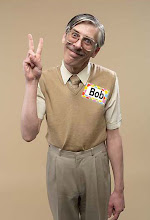
2008, the death of the CD and the death of the music business as we know it.- Flash Drive Direct offers solution to music retail sector blues.
The CD is dead and so is the music industry as it faces the prospect of a download only era. Music industry insiders know that the download business strategy is not suited to the labels.
The labels are 5 years too late to stake a viable claim in the download arena. They cannot successfully compete with LimeWire, MySpace and other free services.
EMI, Warner, Hollywood record labels have been seriously exploring the last potent retail replacement for the CD, the flash drive.
Flash drive designer and manufacturer Flash Drive Direct has penned a treatise that describes a new and viable replacement for the CD that will appeal to the download demographic and offer a richer media intense delivery system.
The CD is dead. Sales have plummeted nearly 50% over the last 4 years and a whole generation of consumers are now no longer even familiar with the CD as a concept or the idea that a record store is the place to find the "next big thing".
Record labels have reacted either by standing by and watching as the retail industry tanks or by litigating to death their very own consumers in a futile effort to put the download genie back in the bottle.
This generation wants to buy its music, what they don't want to buy is a CD," states John Graham, long-time music industry analyst and current director of Flash Drive Direct design and manufacturing house (http://www.flashdrivedirect.com/). "What the labels have failed to recognize is that the download consumer still wants to buy a tangible tactile product. They are the wealthiest youth generation in history with an estimated annual disposable income of over 20 billion dollars. They lay claim to some of the largest discretionary retail spending. Note the sales of Mac's, iPods, cell phones, $200 jeans and more," concludes Graham.
"The retail experience for the download generation is alive and kicking. The difference is that today's downloaders grew up on MP3 files not CD's," Graham goes on to say. "When MP'3's came along they were first played almost exclusively on computers. However, necessity being the Mother of all inventions, retailers then created the MP3 player industry. As a result the CD player and the CD retail business went the way of the Dodo."
A recent Harvard study on retail trends cited an anomaly in the download generation's retail therapy that was not anticipated. It found that consumers 14-29 would buy music from a retail outlet if two things were changed. One being that the retail environment better represented their personal expression of taste and secondly that if the music were loaded onto a digital device such as a flash drive they would buy it.
The study went on to say that on a secondary level of understanding "the consumer had veered away from the CD as it offered little in the way of new media interactivity". The consumer had found that the CD only offered a 1 dimensional experience and had no "bells and whistles".
John Graham of Flash Drive Direct goes on to explain, "the problem with the CD in recent years was not just a lack of a solid CD's worth of material but the high cost the consumer paid for what amounted to nothing more than a $15 expense for 1-2 singles, a bunch of filler and no killer! The labels only have themselves to blame for much of this."
The new delivery device that will recapture the spirit of the vibrant 80's and 90's CD sales boom is the digital flash drive. To date many artists have released limited edition and on-line sales of flash drive albums. However, there were 2 consistent failures in these tentative approaches. Firstly the retail environment had no rack space to best showcase the drives and perhaps more importantly the artist and labels did not grasp the enormous range of expression that the flash drive offered.
The drive would contain the tunes but what has not been fully understood was what else the flash drive offers. The drive not only delivers songs but videos, print files of all of the artist's previous CD covers, tour posters, band bio's and more. It also could easily be formatted to link to outside websites where the consumer could buy tickets, visit the band's website, download coupons and link to a wide variety of on-line and real world experiences. The flash drive is much more impactful as a retail tool when viewed as a web portal, multi- media storage and song delivery device than just a mere replacement for the CD, as the CD was for the LP.
Flash Drive Direct does work for the corporate world along with new media ventures with record labels, film studios, television and more.





No comments:
Post a Comment